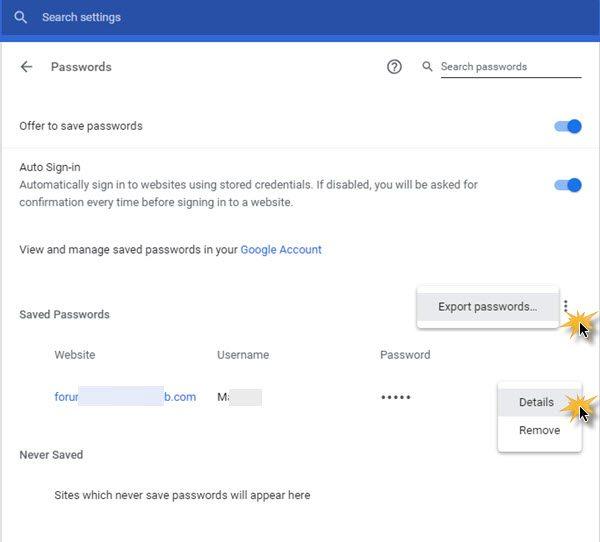

Now then, let’s get started making the application itself, but before making sure you have all the prerequisites specified above. We are also going to be working with SQLite on this project but that is preinstalled in most Windows and Mac-based systems. If you encounter any issues when upgrading, you can also try executing: python3 Scripts/pywin32_postinstall.py -install To do that you’ll need win32crypt, which is a decoder and the most important part for this application to work you can install it with the following command by running in the command prompt. So to retrieve the stored data from Chrome, we need to decrypt and simplify it a bit to make the database readable. This can save lots of time since you don’t have to manually collect the list of saved passwords and their locations, you just need to run the script and it will do all the work for you.įor security reasons, Chrome stores its passwords in a very safe way, making them unreadable.

This will be a Python script for extracting saved passwords from Google Chrome browser that may be used by anyone that’s into cyber security, network penetration testing, software security analysis, IT security auditing, or forensics. We going to some Python code, some third-party libraries, and a bit of elbow grease to extract all this information and then decrypt it into plaintext passwords! Chrome has a built-in password manager function that stores all the passwords both in the cloud via an SQLite database file and on your local system, from which you can get the passwords. On many operating systems, mainly Windows and MacOS, Google Chrome stores its users’ saved passwords in a database. This tutorial will help you to Extract stored Chrome Passwords and Decrypt them using Python.īut first, let’s discuss the purpose and background of this tutorial. You can use some Python code, some third-party libraries to siphon all this information and then decrypt it into plaintext passwords! In this beginner-friendly tutorial, we will write Python code to extract saved passwords from the Chrome browser on a Windows machine. Google Chrome has a built-in password manager function that stores all the passwords on both you’re in the cloud via an SQLite database file and local device from which you can get the passwords.


 0 kommentar(er)
0 kommentar(er)
